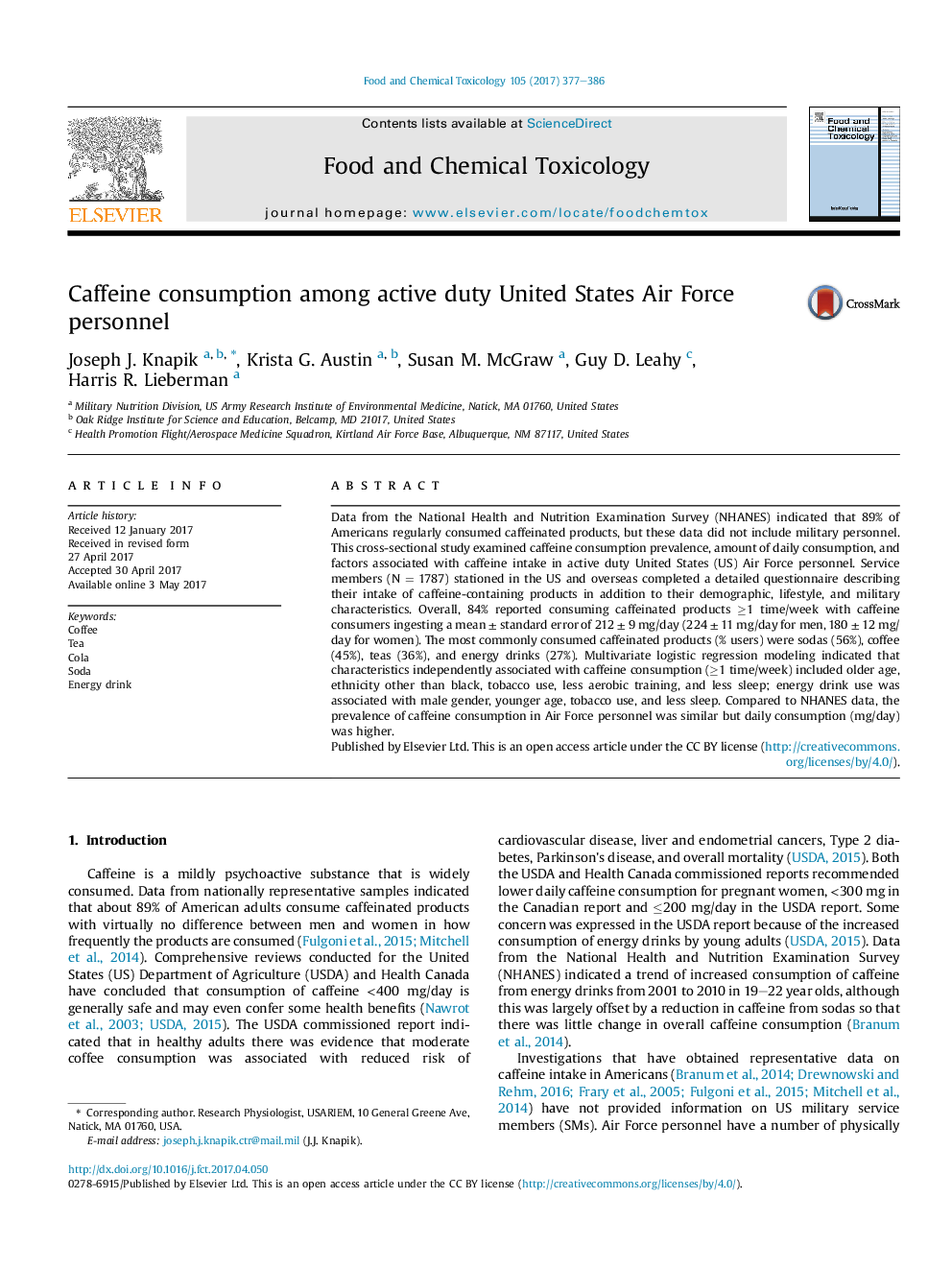| کد مقاله | کد نشریه | سال انتشار | مقاله انگلیسی | نسخه تمام متن |
|---|---|---|---|---|
| 5560200 | 1561740 | 2017 | 10 صفحه PDF | دانلود رایگان |
- Overall, 84% of Air Force Personnel reported using caffeinated beverages â¥1 time/week.
- Consumers reported ingesting a mean ± standard error of 212 ± 9 mg/day with men consuming 224 ± 11 mg/day and women 180 ± 12 mg/day.
- The most commonly consumed caffeinated beverages (% users) were sodas (56%), coffee (45%), teas (36%), and energy drinks (27%).
- Characteristics independently associated with caffeine use among Air Force personnel included older age, ethnicity other than black, tobacco use, less aerobic exercise, and less sleep.
- Compared to the other representative data from the United States, prevalence of caffeine use in Air Force personnel was similar, but daily consumption (mg/day) was higher among consumers.
Data from the National Health and Nutrition Examination Survey (NHANES) indicated that 89% of Americans regularly consumed caffeinated products, but these data did not include military personnel. This cross-sectional study examined caffeine consumption prevalence, amount of daily consumption, and factors associated with caffeine intake in active duty United States (US) Air Force personnel. Service members (N = 1787) stationed in the US and overseas completed a detailed questionnaire describing their intake of caffeine-containing products in addition to their demographic, lifestyle, and military characteristics. Overall, 84% reported consuming caffeinated products â¥1 time/week with caffeine consumers ingesting a mean ± standard error of 212 ± 9 mg/day (224 ± 11 mg/day for men, 180 ± 12 mg/day for women). The most commonly consumed caffeinated products (% users) were sodas (56%), coffee (45%), teas (36%), and energy drinks (27%). Multivariate logistic regression modeling indicated that characteristics independently associated with caffeine consumption (â¥1 time/week) included older age, ethnicity other than black, tobacco use, less aerobic training, and less sleep; energy drink use was associated with male gender, younger age, tobacco use, and less sleep. Compared to NHANES data, the prevalence of caffeine consumption in Air Force personnel was similar but daily consumption (mg/day) was higher.
Journal: Food and Chemical Toxicology - Volume 105, July 2017, Pages 377-386
